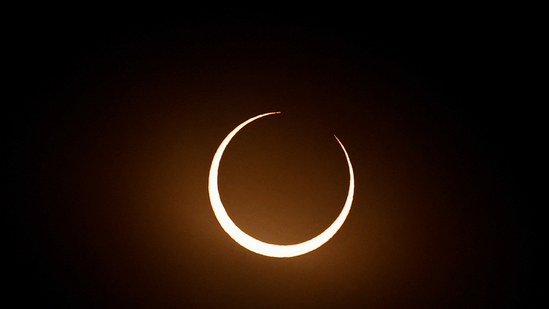On Saturday, March 29, people in different parts of the world will have the chance to see a special event: the first solar eclipse of the year! A solar eclipse happens when the Moon moves between the Earth and the Sun, blocking part of the Sun’s light. This year, we will see a partial solar eclipse, which means the Moon will only cover part of the Sun.
NASA says the part of the Moon’s shadow that would completely block the Sun will not touch the Earth, so no one will see a total solar eclipse this time. However, people in the northern hemisphere will still be able to see some shadow on the Sun!
Where Can You See the Eclipse?
Unfortunately, the solar eclipse will not be visible in India. People in North America, Europe, Africa, northern Asia, small parts of South America, Greenland, Iceland, and much of the Atlantic and Arctic oceans will be able to see it. But guess what? If you’re in India, you can still watch the eclipse online through live streams!
Timings of the Eclipse
Most places where the eclipse can be seen will experience it in the morning. In the northeastern part of the United States, the eclipse will be happening right at sunrise. In western Europe and northwestern Africa, people will see the eclipse during mid to late morning. By the time it reaches eastern Europe and northern Asia, it will be afternoon or early evening.
In Indian Standard Time (IST), the eclipse will begin at 2:20 PM, reach its peak at 4:17 PM, and end at 6:13 PM.
Safety Tips for Watching the Eclipse
It is very important to protect your eyes while watching a solar eclipse! Looking directly at the Sun, even during a partial eclipse, can harm your eyes. You should only watch the eclipse using safe solar viewing glasses or handheld solar viewers.
Don’t use regular sunglasses to see the eclipse—they aren’t safe! Also, don’t look at the eclipse through cameras, telescopes, or binoculars—these can damage your eyes. Always use a special solar filter with any optical devices to watch the event safely!


Leave a Reply